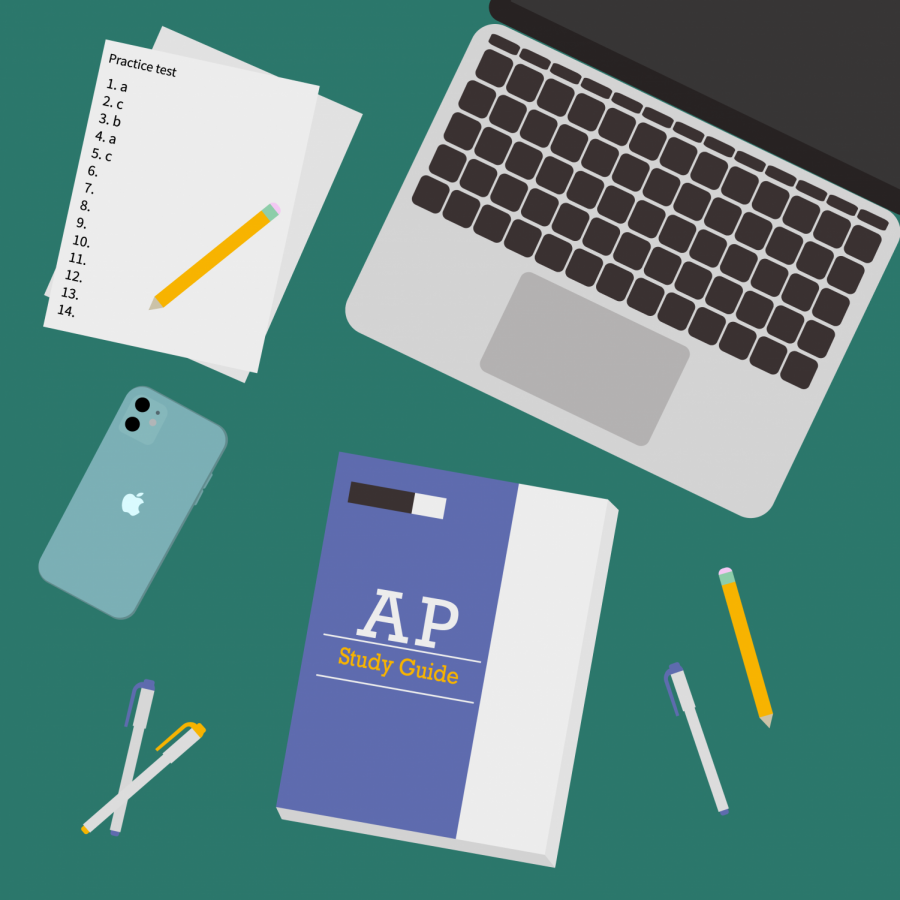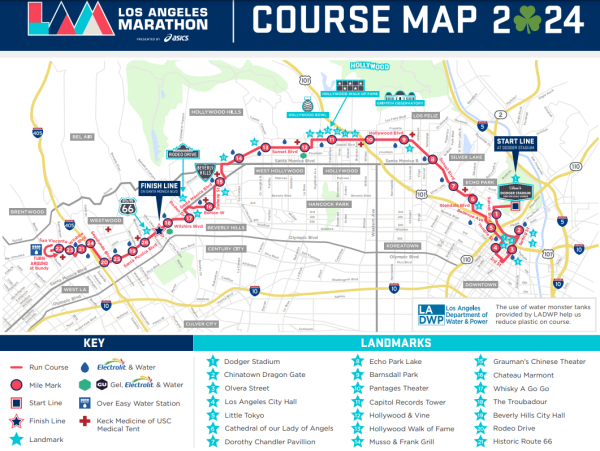Don’t Stress, They’re Just Some Tests
AP exams can be stressful if students do not properly prepare for them.
March 10, 2020
May is the month of spring, flowers, and absolute panic from AP students and teachers alike as they prepare for the event they have been anticipating since August: AP tests. While many students may feel stress to the point of discouragement, their efforts should not dwindle as they near the finish line. With effective studying and preparation, AP students should not fear their exams in May–after all, they’re just some tests.
-
Drag out reviews
AP students are skilled in more than advanced curriculum; they are also proficient in the art of cramming information over a short period of time. However, resist preparing for AP exams the night before, as cramming information not only is limited in effectiveness, but also maximizes stress as students realize just how little information they know. Instead, plan out the review material and divide the material over the course of at least but no more than a week before the AP exam. For example, if there are seven units for the class, review one unit every day. This will allow students to retain information better by dedicating some time of each day to reviewing rather than staying up late the night before.
-
Make flashcards
While many students may dismiss flashcards as tedious and unhelpful, they can actually be very useful for remembering information by writing it down and quickly reviewing it during any free time. Rather than utilizing flashcards for merely memorizing vocabulary, students can write other important information. The key to flashcards is writing down information in a concise manner which students can connect to more details. For history classes, write down major events and their dates. For math and science classes, record important formulas. However, flashcards will lose their purpose if they are not properly reviewed–carry them around in folders or backpacks and glance at them whenever possible.
-
Attend review sessions
Most AP teachers will hold review sessions before school, during lunch, after school, or on the weekends which are extremely useful for reviewing information. AP teachers will often have exclusive access to valuable resources and may even offer extra credit for attending which will boost grades.
-
Form study groups
If it is helpful to study with others, form study groups with peers who can be trusted to stay focused on reviewing rather than socializing. Sharing information is always useful, and teaching it to others allows students to better understand the material themselves. Learning from peers’ variety of perspectives can also offer new ways of reviewing. For Sarah Kim (12), who is currently enrolled in four AP classes and multiple in previous years, “study groups can be a fun way to study, but if you or your friends are easily distracted, then it’s probably best to study alone.”
-
Practice, practice, practice
Ultimately, the key to AP exams is constant practice. While reviewing information is helpful, it is critical to apply this knowledge to answering a variety of prompts and questions. Most AP exams consist of two major components: multiple choice and free response questions. To practice multiple choice, look up practice tests online or in review books. To practice free response questions, look up previous AP exams on the official College Board website. For both, simulate real testing conditions by answering questions within the time limit to practice timing. Afterwards, self-correct answers and read over justifications for wrong answers. With constant practice, students are sure to ace the real test.
Underneath the pressure of potential college credit and the weight of more than eight months of preparation, AP exams are simply another test. With proper review, practice, and preparation, any AP student can easily ace their AP exams.






















